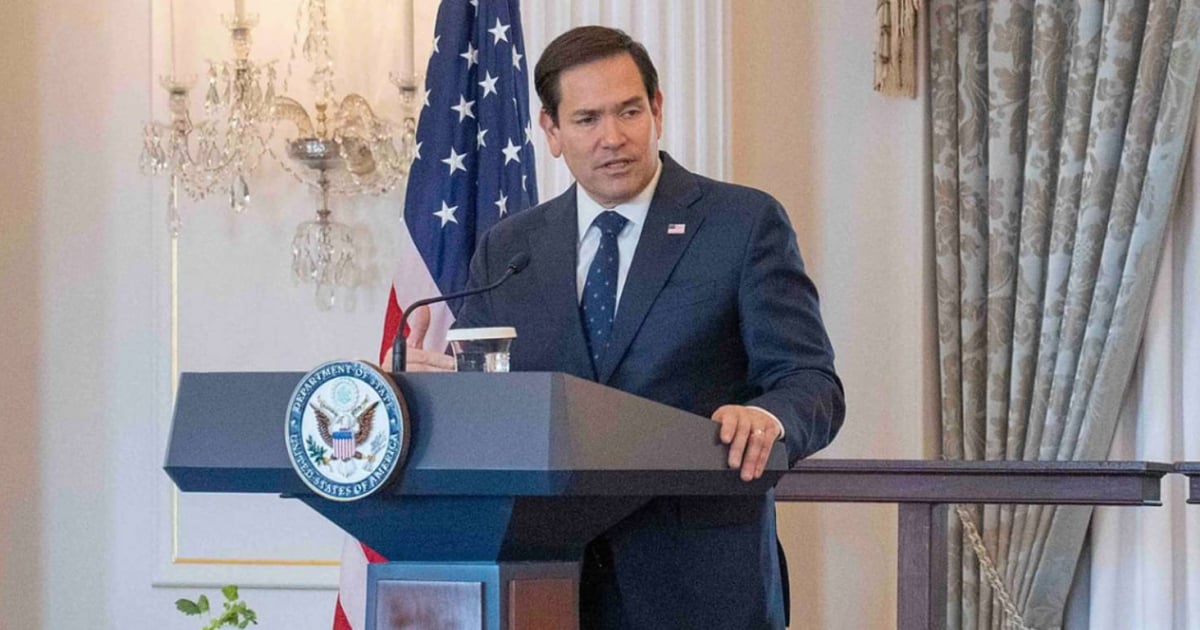The U.S. Secretary of State, Marco Rubio, stated this Wednesday that the situation in Cuba cannot be ignored, referring to the challenges posed by authoritarian regimes in the Western Hemisphere during a hearing before the House Appropriations Committee.
Rubio appeared to present the State Department’s budget for the upcoming fiscal year and responded to a question from Cuban-American Congressman Mario Díaz-Balart about the Trump administration’s approach to Latin America.
“Simply put, we cannot ignore what is happening there [in Cuba], because in addition to the lack of democracy and similar issues, there are sources of serious instability,” cited Martí Noticias.
Rubio detailed that the U.S. diplomatic strategy in the region is organized into three categories.
The first are the allied democracies: countries with elected governments and friendly relations with the U.S., which —according to the Cuban-American politician— should benefit from being allies.
Secondly, he mentioned the less friendly democracies, with which Washington does not seek confrontation, but that should receive different treatment than that of its allies.
Finally, he mentioned the autocracies such as Nicaragua, Venezuela, and Cuba, which, according to the Secretary of State, pose a structural threat to regional stability and human rights.
Rubio highlighted that between 11% and 12% of the Cuban population has left the island in the last 18 months, a phenomenon he described as part of “one of the largest migrations in the history of humanity,” alongside the exodus of 8 million Venezuelans.
The Secretary of State warned that the Venezuelan regime allows narcoterrorist groups to operate within its territory, which threatens the stability of Colombia and other neighboring countries. In this context, he linked the Cuban crisis to a network of regional destabilization that demands strong responses from the U.S.
Rubio’s statements coincide with an announcement from the State Department regarding new sanctions imposed on four Cuban officials —three judges and a prosecutor—involved in the arbitrary detention of young activist Luis Robles Elizástigui, who was released in January 2025 after serving most of his sentence.
“Cuban regime officials who commit human rights violations are on notice,” stated the Foreign Ministry on its official X account. “Today, the U.S. holds three Cuban judges and one prosecutor accountable for their role in the arbitrary detention of Luis Robles. With this action, these individuals are now ineligible to enter our country.”
A senior official from the State Department stated to Martí Noticias that this measure reaffirms the Trump administration’s policy of accountability regarding human rights violators in Cuba.
Frequently asked questions about the situation in Cuba and the position of the United States
Marco Rubio considers that the situation in Cuba is a source of serious instability due to the lack of democracy and human rights violations. Moreover, he highlights that between 11% and 12% of the Cuban population has recently left the island, representing one of the largest migrations in human history. This, along with the influence of authoritarian regimes in the region, demands a strong response from the United States.
The United States has imposed sanctions on three Cuban judges and a prosecutor for their role in the arbitrary detention of young activist Luis Robles Elizástigui. This measure is part of the accountability policy of the Trump administration towards human rights violators in Cuba, rendering these individuals ineligible to enter the United States.
Marco Rubio describes the Cuban regime as a structural threat to regional stability and human rights. He points out that the Cuban regime, along with those of Venezuela and Nicaragua, contributes to the destabilization of the region, and accuses these governments of being responsible for the migration crisis in the hemisphere. Rubio emphasizes the need to address these authoritarian regimes to protect the stability and security of the region.
The diplomatic strategy of the United States in the region is divided into three categories: allied democracies that maintain friendly relations with the U.S., democracies that are not so friendly with which a different approach is sought than that of allies, and autocracies like Cuba, Nicaragua, and Venezuela, which pose a threat. This strategy aims to strengthen relationships with allies and address the threats posed by authoritarian regimes.
